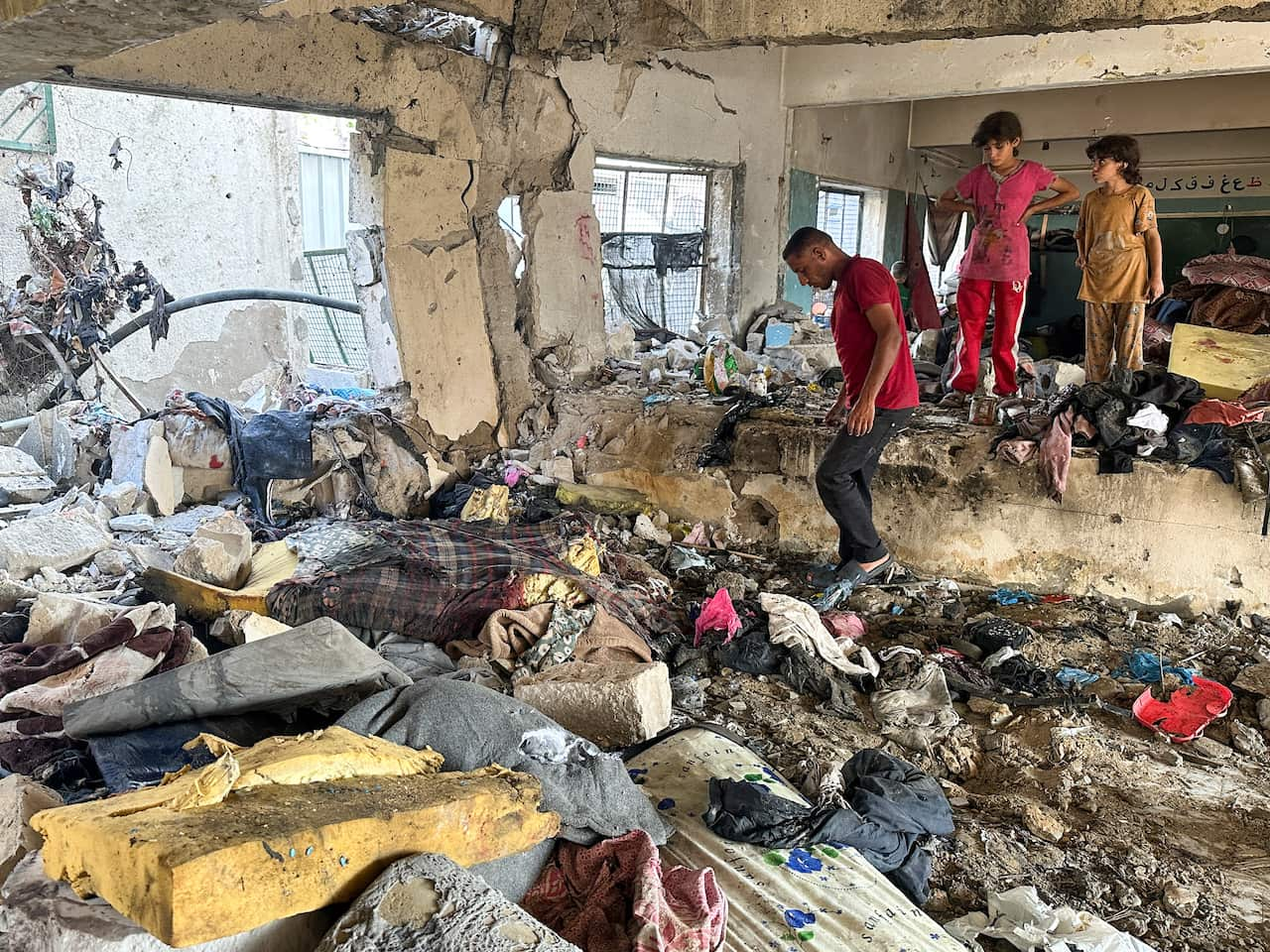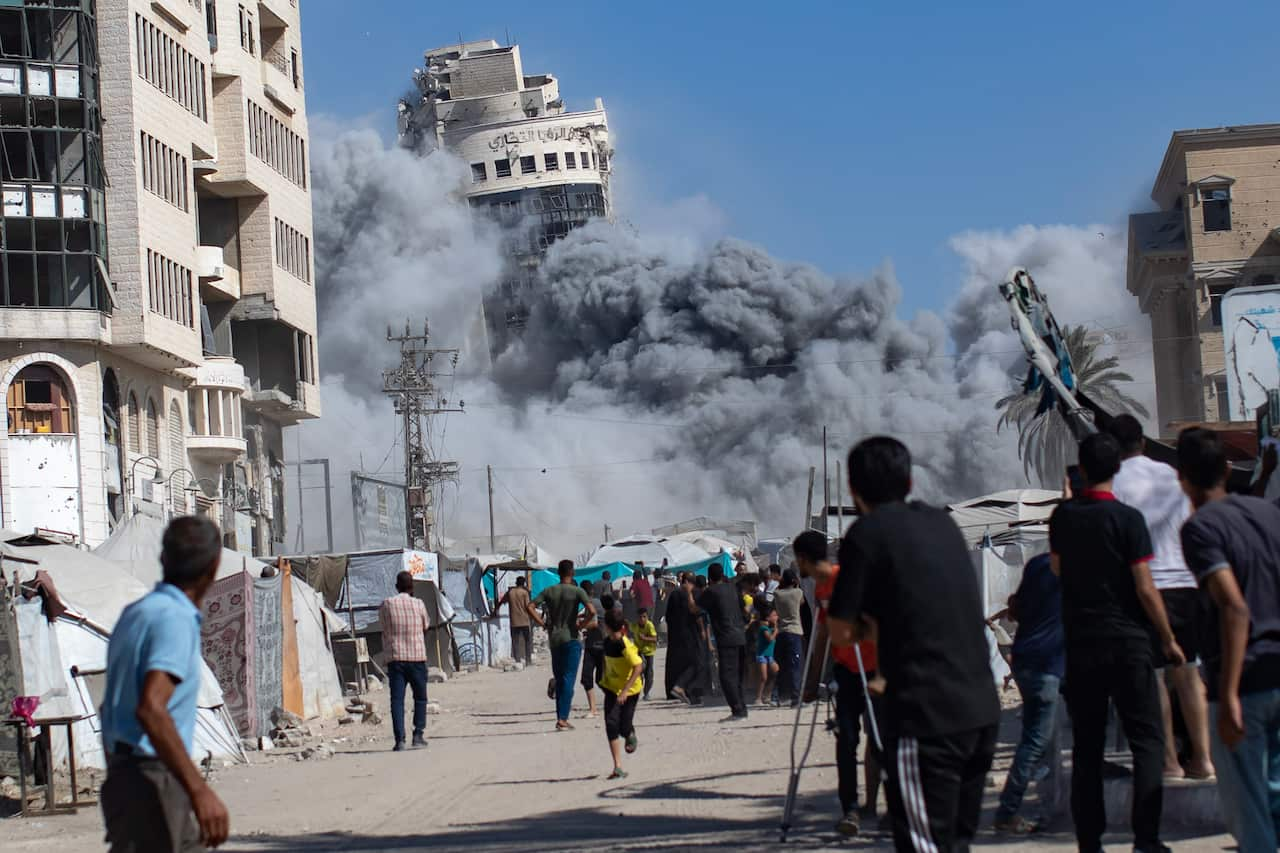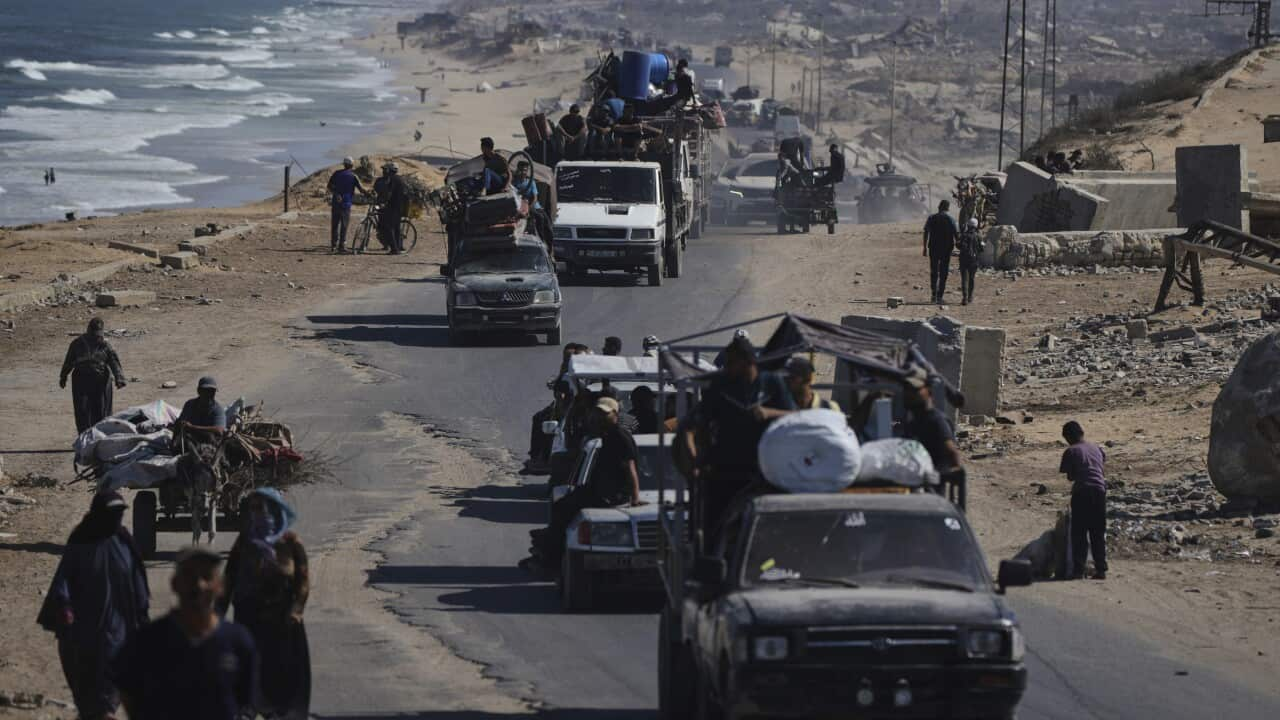Key Points
- Palestinians in Gaza City have been told to leave the area by Israel.
- The vast majority of Gaza's population has been displaced over the last two years.
- Israel is expected to launch a full-scale assault on Gaza City.
Palestinians have fled in tractors, carts and overloaded vans down a coastal road in the central Gaza Strip, the latest mass displacement as Israel intensified its assault on the territory's main city.
Those escaping the offensive on Gaza City left behind them a scene of utter devastation, where smoke from the aftermath of Israeli strikes wafted behind buildings that had already been reduced to rubble.
On Tuesday, the Israeli military told all residents to leave immediately and head southwards, saying it would act with "great force" in the city.
The Israeli military airdropped leaflets with evacuation orders onto residents standing amid the rubble of Gaza City, where it has bombed residential towers to the ground in the past few days.
"I say to the residents of Gaza, take this opportunity and listen to me carefully: you have been warned — get out of there," Israeli Prime Minister Benjamin Netanyahu said.
The evacuation orders caused panic and confusion among residents of the strip's largest urban centre, who say there is no safe place to go to escape bombardment and a humanitarian crisis.
The health authorities in Gaza announced they would evacuate Gaza City's two main operational hospitals, Al-Shifa and Al-Ahli, adding that doctors would not leave patients unattended.
Nearly a million people were estimated to live in Gaza City and its surroundings — the Palestinian territory's largest urban centre, which the Israeli military is gearing up to seize — before October 2023.
"We were forcibly displaced to the southern Gaza Strip under intensified shelling," said Saeb al-Mobayed, who was fleeing Gaza City along the coastal road.
"Many buildings have been destroyed," he told Agence France-Presse. "Mosques near areas sheltering displaced people were also targeted, forcing us to leave."
Israel has come under mounting international pressure to end its offensive in Gaza, where the vast majority of the population has been displaced at least once in nearly two years of war.
International critics say Israel's plan, which includes demilitarising the whole strip as Israel takes security control, could worsen the humanitarian plight of the 2.2 million Palestinians who live there.

A global hunger monitor relied on by the United Nations has declared famine in areas including Gaza City.
Some of those forced into their latest move travelled on trucks and tractor-pulled trailers piled high with people and household furniture, while others had little choice but to push heavy carts by hand.
The Israeli military is telling Palestinians to head to a "humanitarian zone" in the southern coastal area of Al-Mawasi, where it says aid, medical care and humanitarian infrastructure will be provided.
Israel first declared the area a safe zone early in the war, but has carried out repeated strikes on it since then, saying it is targeting Hamas.

Gazans have said the journey south is prohibitively expensive and that there is no more space to pitch tents in the designated zones.
The spokesman for Gaza's civil defence agency, Mahmud Bassal, told AFP on Tuesday that even in central and southern areas of the territory: "There are no basic necessities for life — no shelter, no space for tents, no food, and no drinking water."
Media restrictions in Gaza and difficulties in accessing many areas mean AFP is unable to independently verify the details provided by the civil defence agency or the Israeli military.
Hamas' October 7 attack on Israel in 2023 resulted in the deaths of more than 1,200 people, according to Israeli figures.
Israel's retaliatory offensive has killed at least more than 64,000 Palestinians, according to figures from the health ministry in Gaza.
Israeli defence minister Israel Katz said on Monday the military would unleash a "mighty hurricane" that would destroy Gaza if Hamas did not free the last hostages it holds and surrender.
Israel has called up tens of thousands of reservists for a ground operation.
Netanyahu said Israeli forces were organising and assembling into Gaza City.
The full-scale operation is not yet expected to start in the coming week, and no new advance by tanks to deepen the ground offensive was reported so far on Tuesday.
Israeli forces have been operating on Gaza City's outskirts since last month, and the military said it was in control of 40 per cent of the city already.
Launching the new Israeli assault could complicate ceasefire efforts to end the nearly two-year war.
Hopes had been pinned on mediation efforts to reach a ceasefire that would avert Israel's plan.
The health ministry in Gaza appealed to the international community to protect Gaza City's hospitals, warning of "a humanitarian catastrophe that threatens the lives of thousands of patients and wounded individuals".
For the latest from SBS News, download our app and subscribe to our newsletter.

